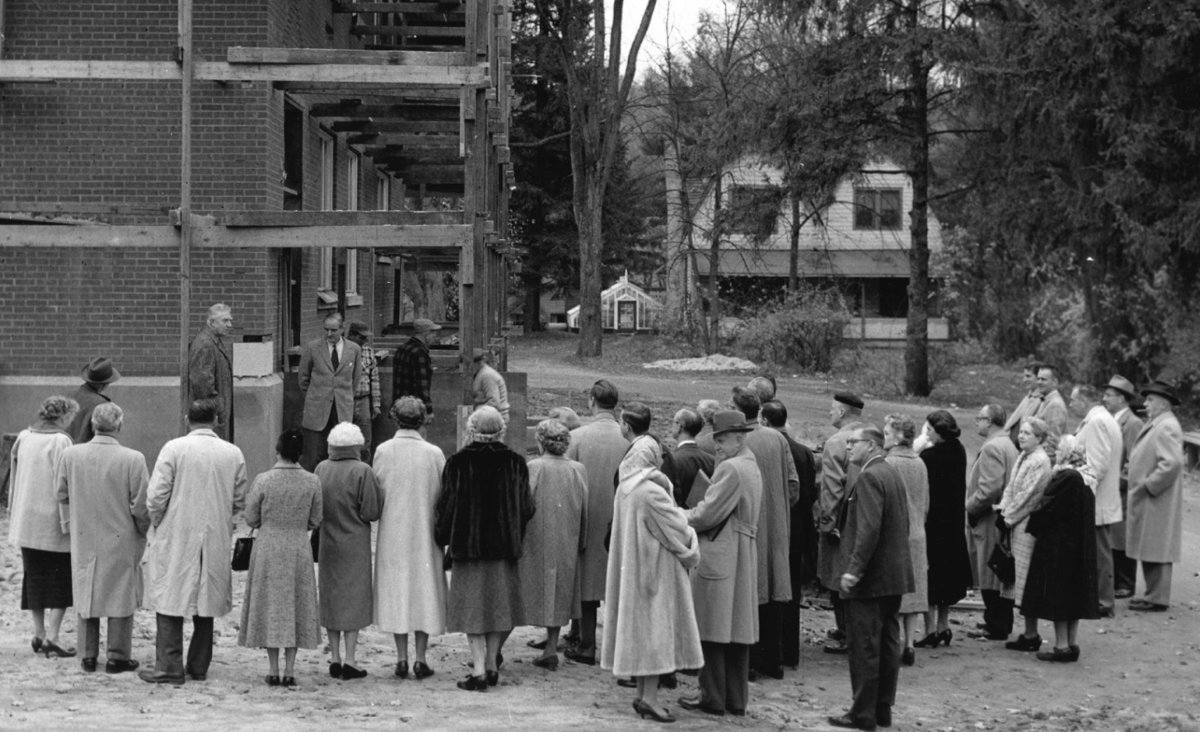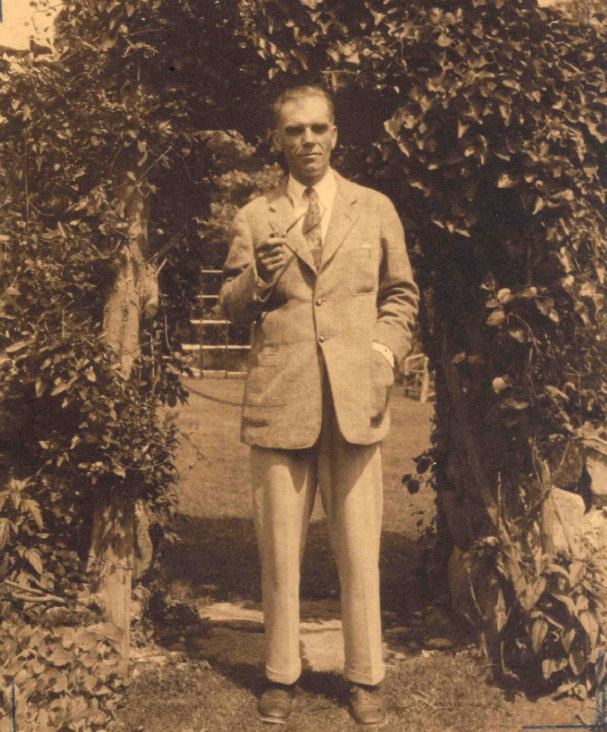The Hospital on Main Street: Austen Riggs Center Celebrates 100 Years in Stockbridge
Exhibits, conferences and other events will observe the centennial of the internationally respected psychiatric hospital.

Exhibits, conferences and other events will observe the centennial of the internationally respected psychiatric hospital.

A leisurely stroll down Main Street in Stockbridge, Mass. reveals the familiar: boutique shops, quaint churches, a beautiful library, small cafes, the iconic Red Lion Inn. But there is one place — thick now with spring green and fragrant viburnum — that remains somewhat enshrouded, even to longtime locals. The attractive campus of the Austen Riggs Center is comprised of 1890s estate buildings alongside well-lit modern structures and surrounded by impeccable landscaping. Passersby would think it a spa or an elite private college. But for the last century, the Center has operated as a therapeutic community and open psychiatric hospital (as well as an educational center for research) that promotes resilience and self-direction in adults with complex psychiatric problems in need of long-term treatment.
Most people just refer to the place as “Riggs.”
“I think that’s one of the things that makes this place work,” says Dr. Jane Tillman, director of the Riggs Erikson Institute for Education and Research. “The people of Stockbridge are more important than they know to the patients here. There is a polite, New England familiarity. When people staying at Riggs walk into town, those ‘hellos’ and interactions with people are so important. Riggs wouldn’t work in Chicago.”
For 100 years, the Austen Riggs Center has coincided peacefully with the local community, although it is, by necessity, somewhat of a mystery still. Tillman and a dedicated group of staffers and volunteers from across the country are trying to remedy that to some degree, with a very public and permanent exhibition in honor of Riggs’ centennial celebration. “The Hospital on Main Street: Human Dignity and Mental Health” will open at the newly renovated Old Corner House at 48 Main Street (the original site of the Norman Rockwell Museum, purchased by the Center in 2017) on May 26. A private ribbon-cutting ceremony will kick off the exhibition and more centennial-related events happening at and around the Center. A collaborative exhibition at the Norman Rockwell Museum, “Inspired: Norman Rockwell and Erik Erikson” will explore the relationship between the famed artist and a Riggs staff psychoanalyst (June 8–Oct. 27, 2019).
“Some people are aware of what we do here, some are not. We coexist quietly for the most part,” says Tillman, who is also the project director for Riggs’ centennial exhibitions. “But it’s time. We’re hoping, with this, to educate the local community. And to have a bigger draw nationally, as well; that people will see the exhibition and take a stand for a certain set of values for mental health.”
Taking a stand is part of the culture at Riggs, which serves some 150 patients every year (each with an average stay of six months to a year). Dr. Erik Plakun is the CEO and medical director — and a board-certified psychiatrist, psychoanalyst, researcher, and forensic psychiatrist — at Riggs. He is matter of fact when it comes to the varying (oftentimes unsuccessful) national approaches to mental health throughout the last four decades.
“We need to pay attention to the meaning of the suffering of patients,” says Dr. Plakun. “The common myth is that a patient has a single disorder. But a vast majority of patients have multiple disorders, and their treatment is too narrow. That’s when they are labelled as ‘treatment resistant’ and that’s generally when they find their way here.”
A biological-social-psychological triumvirate has been at the heart of treatment since the Center’s incorporation under founder Dr. Austen Fox Riggs in 1919. This holistic approach to psychiatric disorders, one that combines completely voluntary, intensive psychotherapy with a full range of psychiatric services including health and wellness programming, activities such as fiber arts, drama, gardening, ceramics and an on-site nursery school where patients interact with kids and observe early childhood development, serves as a treatment model in a time when the country is facing a mental health crisis. Borrowing from FDR’s 1941 address to Congress outlining freedom of speech, freedom of religion, freedom from fear and freedom from want as the four basic human freedoms (which Rockwell famously illustrated), Dr. Plakun lays out the Four Freedoms in Mental Health Care: Freedom from stigma, freedom from dehumanizing treatment, freedom to pursue meaning in life and in treatment, and freedom of choice in access to effective and medically necessary care. He defines a patient success story as one of agency, acceptance and dignity.
“I think that if someone can work — whether at a job, or at school, or in art; and love, that is, be capable of forming loving relationships, then they are successful,” he says. “And also, if they are able to be a citizen — wherever they are in life.”


